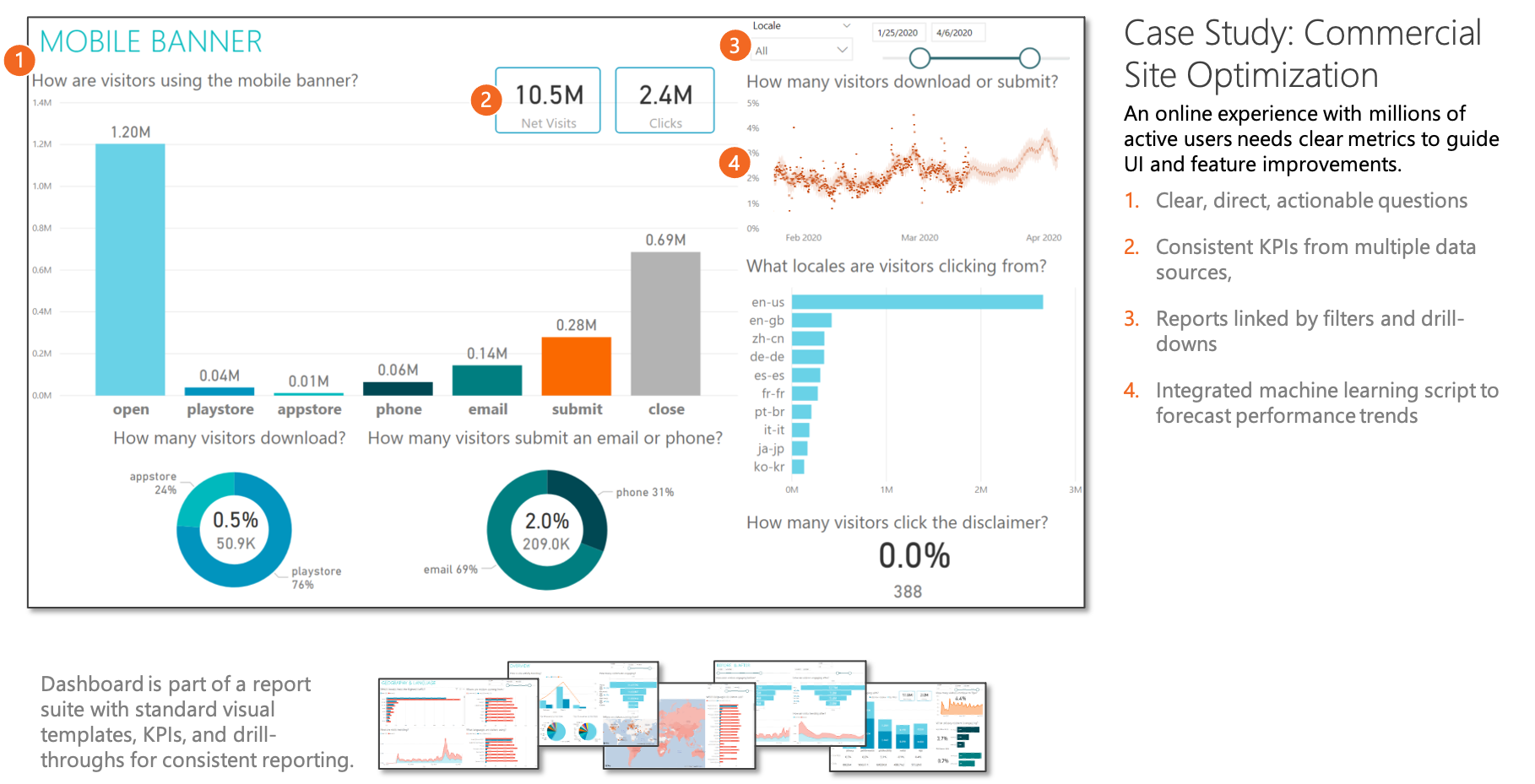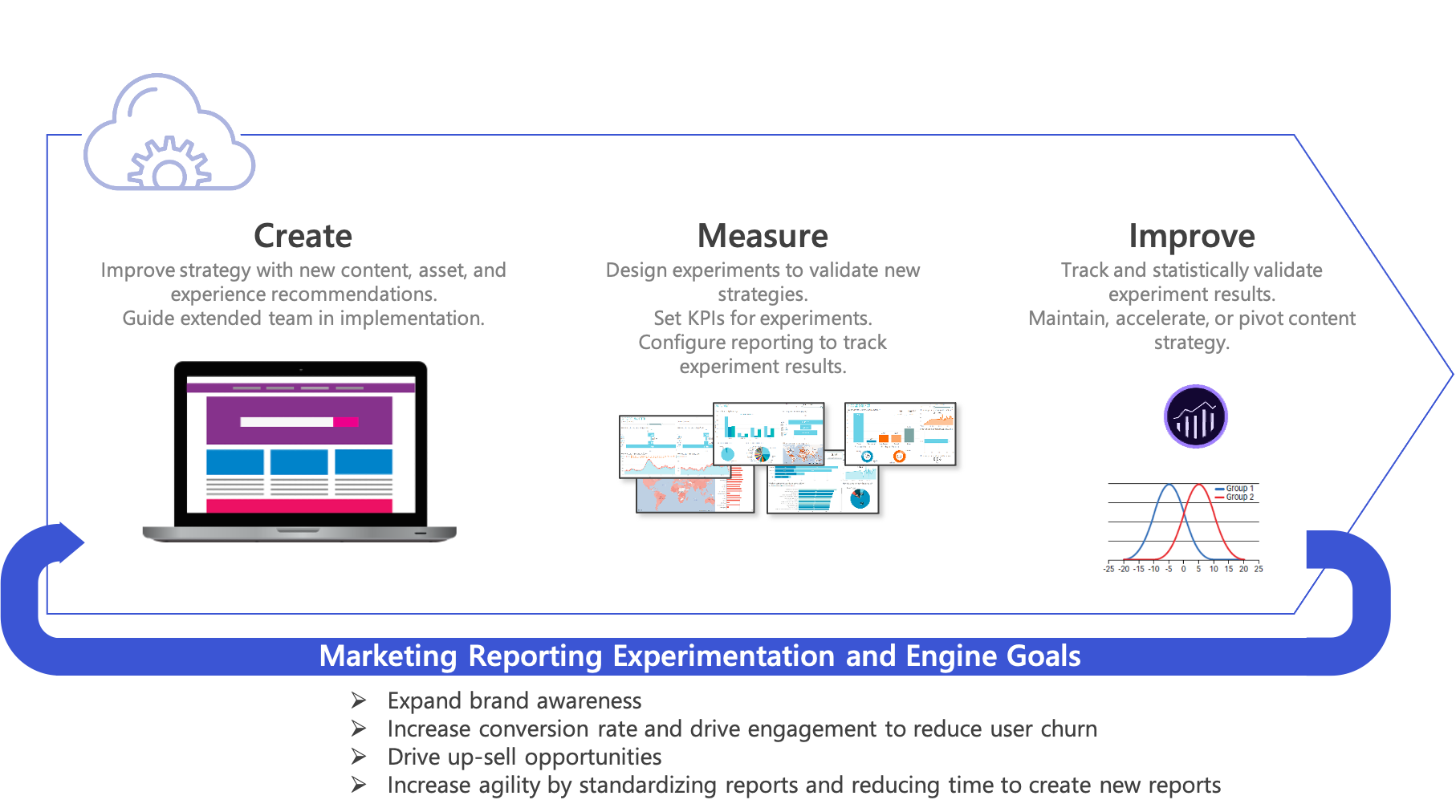5-minute read
Remember the days when marketing was a calm, cool environment where a good set of customer analytics would tide you over for a month’s worth of strategic, data-driven decisions?
Yeah, neither do I.
Today customer behaviors, preferences, and attitudes can change at the speed of light, and marketing teams need to move—and pivot—no less quickly. The good news is, in this era of big data marketing, there’s no shortage of data to inform and guide those day-to-day (or hour-by-hour) decisions. The less-good news is that most marketing teams don’t have dedicated data scientists and data engineers. They must often rely on their overburdened, backlogged colleagues in IT to spin that data into actionable information and deliver it in a usable format … and wait for it.
It’s a conundrum that plagues organizations across industries, and fortunately, there is a solution. When we work with clients to empower their marketing teams with the data tools they need to be more agile, we focus on three facets: improving the data structure, creating a standard reporting system, and building a nimble, scalable framework.
Need help with your digital marketing?
1. Improve the data structure
Data is at the heart of strategic marketing decision-making, so any effort to streamline the process must begin with the data itself. Marketing data flows in from a host of sources—think website traffic, PPC campaigns, email marketing, social media, mobile apps, etc.—at various rates and in a variety of formats. Before this data can flow into a usable dashboard or hub, it needs to be made usable and accessible.
When we work with clients, we focus on two key deliverables at this juncture:
• Stage the reporting data: Make sure the data is structured to be used effectively by the analytics reporting system.
• Ensure accessibility: Integrate the analytics platform to ensure automatic flow of data when and where it’s needed.
2. Create standard reporting
If a report needs to be created from scratch every time it’s needed, the process takes up time and resources that few marketing teams have to spare. By feeding data into automated marketing dashboards and high-level reports, we place the data marketing needs at their fingertips, whenever they need it.
The ideal reporting tool will spin the latest marketing data into action-oriented insights that enable more strategic business decisions. For example, the following dashboard could guide a marketing team’s next steps in optimizing their commercial website for maximum traffic:

(Click image for a larger version)
3. Build a nimble, scalable framework
Marketers have access to a huge store of data, which they can combine and re-combine to view customer behavior from multiple vantage points. To cite just a few examples,
• Multivariate testing allows marketers to test the results when certain variables are changed, such as the layout of a landing page.
• Cohort analysis enables the team to track the behaviors of a specific set of users (e.g. long-term customers) over specific periods of time to determine which approaches resonate best with them.
• Funnel analytics gives marketers the opportunity to review and redefine the customer journey—to test hypotheses and see where users actually go for content, and to update their journey flows accordingly.
• Personalization lets teams dynamically retarget content and test to see which actions are driving users to the next phase of the customer journey.
When the marketing team is empowered with a self-service analytics framework, they have their own “experiment engine” that lets them evaluate any number of possibilities:

The marketing team is then free to play with different ways of combining and viewing their data and to evaluate the results of experimental initiatives, such as a pilot campaign for a new marketing channel or a new data source. We work with our clients to create a structure for ad-hoc reporting, creating a rhythmic framework for shared learning and experimentation that will continue to serve the team as their environment evolves.
Case study: agile marketing analytics at Expedia
One of the world’s largest online travel companies, Expedia, came to Logic20/20 with a need to understand, via cross-brand analytics, the best practices for SEO and SEM insights and to make the most of their SEM investments. The company has multiple brands, each with its own online profile and its own PPC budget, and wanted to ensure they were not competing against themselves in bidding for clicks.
We reinvented Expedia’s analytics across multiple channels and brands to integrate their SEO and SEM data with their existing analytics platform.
• On the data side, we incorporated Google Analytics with sales and marketing data to enable new insights, while also integrating and visualizing cross-brand, cross-channel search engine and sales data.
• On the analytics side, we integrated multiple data sets from external and internal sources and created a self-service business analytics platform incorporating advanced analytics and machine learning.
With their new marketing analytics ecosystem in place, Expedia was able to increase sales with expanded SEO and SEM marketing offerings across the organization. The marketing team now has a self-service analytics platform that incorporates advanced analytics and AI to introduce real-time machine learning and continuous improvement.
New platforms, new possibilities
Today’s marketing teams have access to a wealth of data that can drive better business decisions for growing their market share, attracting and retaining the best customers, and capitalizing on opportunities as soon as they arise. With an agile framework that delivers current, reliable data when and where they need it, they have the tools they need to make strategic decisions based on near-real-time data—no waiting required.
Like what you see?

Eric Nelson is a Director at Logic20/20 responsible for managing enterprise accounts. He was named one of Consulting Magazine‘s Rising Stars for 2020, honored for his excellence in leadership.

